Aim: Networking and FLOOD-serv
dissemination Size: large, international
Type of audience:
Local Mayors and Ministers, policy makers,
representatives from: European Environment agency, Integrated Water Assessment, UNESCO, water management
Author: floodsrv
The event focused on the Horizon 2020 Work
Programme 2016-17 in the field of Information & Communication Technologies. It offered a unique and exceptional opportunity to build quality partnerships with academics, researchers, industrial stakeholders, SMEs and government actors from all over Europe
July 11, 2019 – IP Tulcea organized the local final event of the Public Flood Emergency and Awareness Project, FLOODServ 693599, during the Ordinary Meeting of the Tulcea Emergency Situations Committee.
Workshop for around 100 public authorities and businesses, organized by ANO
Workshop for around 100 public authorities and businesses, organized by ANO
Vienna, Austria
Training in testing SMC component
IP Tulcea organized the public event “Danube Delta challenges – FLOODserv responses“. The agenda included a presentation the experience in the FLOODserv international consortium, the presentation of the flood risk management models in the national legislation of the partners (Italy, Portugal, Spain and Slovakia), the piloting of the components of the FLOODserv IT platform – implications for the public administration and citizens, development and FLOODserv innovation (FLOOserv portal, Emergency Management Console, CDF, Semantic Wiki and mobile telephony applications) Appreciation for supporting the event to DDNI and Tulcea County Council. Photos can be found at this link
Workshop for around 100 public authorities and businesses, organized by ANO
Workshop for around 100 public authorities and businesses, organized by ANO
STU premises, Bratislava
Pilot testing and demonstration of Flood-serv platform
Pilot testing and demonstration of Flood-serv platform
Review of 2nd Phase of testing
Workshop for around 100 public authorities and businesses, organized by ANO
Workshop for around 100 public authorities and businesses, organized by ANO
1 – Technical school Firpo – Buonarotti
2 – Technical school for Agriculture Marsano
3 – Secondary school – classical studies – Liceo D’Oria
Dissemination of the pilot project activities.
To explain and inform of the next step of the activities in order to realize the test (2th cycle) of the Genoa pilot project
28th January; 1st, 6th, 8th, 12th – 15th February; 2019
Dissemination of the Pilot project to SENIORITY People (UNITE: UNIVERISTY OF THE THIRD AGE)
Workshop for around 100 public authorities and businesses, organized by ANO
Workshop for around 100 public authorities and businesses, organized by ANO
Workshop for around 100 public authorities and businesses, organized by ANO
Workshop for around 100 public authorities and businesses, organized by ANO
Aim:
a) Presentation of the activities and the output of the Genoa Pilot Project; b) Training about the hydrological risk of the territory; c) Technical presentation of the PRE-TEST app (Mugugn.app)
Size of Audience: 48 participants
Type of Audience: Engineers
Ordine degli Ingegneri di Genova- sua sede (headqua rters)
Workshop for pilot preparation,
Size of Audience: 19 participants from consortium and Slovak stakeholders
Type of Audience: Involved key project stakeholders from Slovakia, incl. mayors of pilot municipalities Bratislava Raca and Bratislava Devin who gave presentations.
Municipio Medio Levane – Genova, Italy
Dissemination of the project and its goals to involve citizen for active contributions. http://www.comune.genova.it/ node/77277
Size of Audience: 19 participants
Type of Audience: Local stakeholders and citizens
Community buildup, networking and dissemination.
Size of Audience: 10 participants
Type of Audience: Mayors of flood-risk areas in Bratislava, Slovak Water Enterprise, BSK
Provision of an overview to the stakeholders of the pilot in Bilbao. Workshop D3.1 related to the clarification of Bilbao´s requirements
Size of Audience: 29 participants
Type of Audience: Project partners and local stakeholders.
Provision of an overview to the stakeholders of the pilot in Tulcea. Workshop D3.1 related to the clarification of Tulcea´s requirements
Size of Audience: 20 participants
Type of Audience: Project partners and local stakeholders.
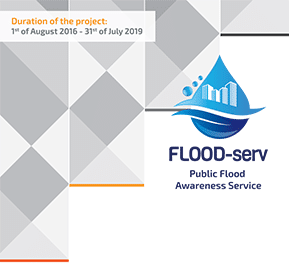
As the FLOOD-serv (Public FLOOD Emergency and Awareness SERVice) Project is coming close to its end, we have just held the final Project Conference on the 26th of June 2019, at Hotel Parliament in Bucharest. The event had around 50 participants and focused on the major theme of the Project that of flood management.
The major technical output of the project, the FLOOD-serv System, was presented and live demoed to the audience (by Mr. Pedro Leite, ANO Software; Dr. Iuliana Nichersu, Danube Delta National Institute of Research- DDNI; and Dr. Andrei Ogrezeanu, SIveco) explaining its use in case of emergencies generated by floods. The system is fully functional and contains various Components covering different areas of flood management such as: decision support, communication and input from citizens, flood data generation and analysis, etc.
In addition, of particular interest were presentations related to the process of piloting and its results held by Dr. Valentina Marin (University of Genova), Dr. Iuliana Nichersu (Danube Delta National Research Institute), , Dr. Andrei Ogrezeanu (Siveco). The FLOOD-serv Project has undergone a complex process of piloting of 6 components, in 5 European Pilot Cities (and partners to the Project: Bilbao, Bratislava, Genova, Tulcea and Vila Nova de Famalicao) with various types of users: employees of pilot cities, stakeholders, and citizens, and in 3 cycles of piloting. In all cycles of piloting diverse users were trained, and involved in the use of the System, and valuable feedback collected and analyzed. Based on the feedback from users, the System was adapted and improved. Working with end users, and especially citizens, was a particularly valuable experience for the entire project.
The Final Conference benefited of the presence of two official guest speakers. Ms. Mirela Raicu, director of the Tulcea Environmental Agency discussed the importance of flood management in the context of environmental protection. Mr. Michal Drotovan, Mayor of the City of Rača presented the needs of the City of Rača with regard to flood management and how the FLOOD-serv System can help.
The final presentation belonged to Dr. Monica Florea from Siveco, who presented possible project oportunities as continuations of the FLOOD-serv Project.
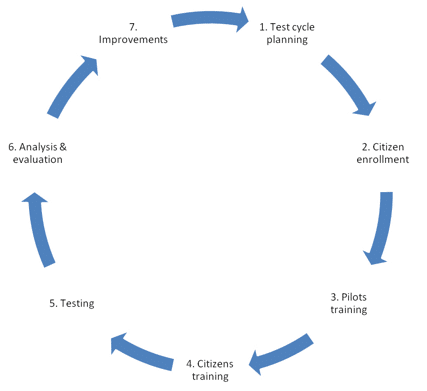
Since mid 2018 the FLOOD-serv Project has entered in its last phase called Verification, Piloting, Evaluation and Validation. In brief, we refer to it as Piloting. In the piloting phase a software system, in our case the FLOOD-serv System, is deployed on a limited scale in order to be tested, verified, validated and evaluated by a limited number of users. In our case piloting the FLOOD-serv System means deploying and testing it at the level of the five pilot cities, i.e. five partner organizations at city or otherwise local level:
- Municipality of Bilbao (Spain);
- Self-Governing Region of Bratislava (Slovakia);
- Municipality of Genova (Italy);
- Prefecture of Tulcea (Romania);
- Municipal Council of Vilanova de Famlicao (Portugal).
Piloting is scheduled to take place in three cycles each containing 7 phases as shown in the figure below:
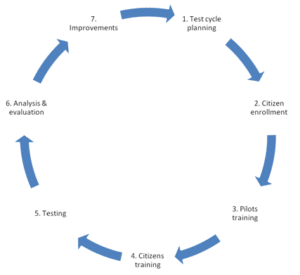
Each cycle contains several preparatory phases: 1-4 (planning, training participants, etc), the actual testing (phase 5), the analysis of results (phase 6) and the execution of improvements to the FLOOD-serv System and its Components (phase 7).
Who is involved in piloting?
Piloting within FLOOD-serv involves orchestrating the participation of a variety of people and organizations who may be internal to the FLOOD-serv Consortium or external to it:
- Professional testers, employees of the Technology Companies responsible for the technical components of the FLOOD-serv System. These professionals perform testing for verification that various functionalities of the system work according to specifications. This testing is done in a test environment before the components are deployed.
- Employees of the pilot cities, persons involved in the management of emergency situations generated by floods. They validate the system for conformity to their expectations and may provide additional inputs for improvements.
- Representatives of stakeholders, persons from organizations others than pilot cities but who may be involved in some way in emergency management. These may be specialized agencies like firefighters or lower or higher level organizations than the official pilot city (e.g. lower level municipalities when the city is represented in the project by a regional organization).
- Last but not least, citizens. The entire FLOOD-serv Project and its creation – the FLOOD-serv System, are ultimately designed to be citizen centric, respond to citizen needs and allow for citizen involvement.
What participants in piloting do?
Participants in piloting execute tests of what the FLOOD-serv System does. What various functionalities of the System do is compared to the specifications as they were defined in the user requirements elicitation phase of the Project. Moreover, as part of the validation process, users/testers may assess to what extent functionalities of the system are useful as they are or may require modifications or additions. In addition to functional testing, participants answer a series of questionnaires referring to the usability of the system.
Ultimately participants test the System and offer their opinions in both quantitative and qualitative judgments. These are used by us to analyze the results of the testing and to plan changes and improvements to the System.
Results of the first cycle of testing
The first cycle of testing was finalized in October 2018. It was probably the most difficult as it was the first time many of the partners were involved in this process. Technical training provided by technical partners to pilot cities was crucial. The main focus was on the involvement of employees of pilot cities but important steps were also taken for the involvement of citizens and stakeholders.
Overall the target of the first cycle of testing was to test 70% of the functionalities and to have 70% of them passing the tests. Overall these targets were well surpassed. Some issues and bugs were identified and the technical teams worked on correcting them before the second cycle.
The second cycle of testing: status and expectations
Our aim compared to the previous cycle is to extend the number of functionalities tested (up to 95% of elicited requirements) as well as to expand on the feedback obtained, especially qualitative feedback. We are also looking forward to a wider involvement of citizens and stakeholders in the testing piloting process.
Actual system testing is planned to be finalized by the end of February 2019.
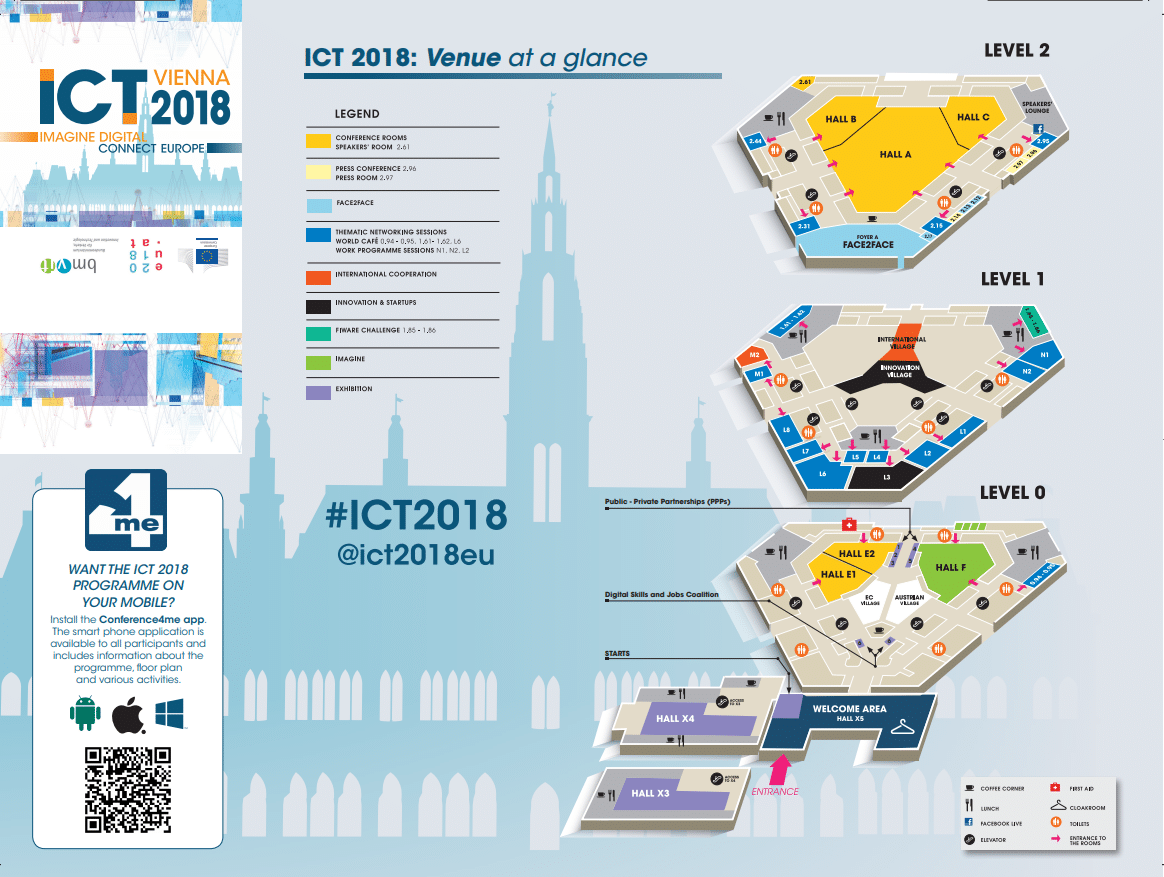
FLOOD-serv project will have the honor to be one of the exhibitors at the ICT 2018 that will take place in Vienna on 4 – 6 December 2018. If you are attending the event visit our stand and learn more about the FLOOD-serv innovative system!
Where to find us
Area: Inspiring a Digital Society (Hall X3)
Stand number: i32
This event is an open and participatory one which is organised by the European Commission and the Austrian Presidency of the Council of the European Union and will focus on the European Union’s priorities in the digital transformation of society and industry.
This research and innovation event will focus on the European Union’s priorities in the digital transformation of society and industry. It will present an opportunity for the people involved in this transformation to share their experience and vision of Europe in the digital age.
EXHIBITION OPENING HOURS
- Tuesday 4/12 – 9:00-18:00
- Wednesday 5/12 – 9:00-18:00
- Thursday 6/12 – 9:00-14:00
OFFICIAL OPENING OF THE EXHIBITION
The official opening (ceremony) of the exhibition will take place on Tuesday 4/12 at 12:15 in the STARTS area in Hall X5 in the presence of Ms Claire Bury,Deputy Director-General of DG CONNECT (EC), and Mr Ingolf Schädler, Deputy Director-General at BMVIT (Austrian Ministry of Transport, Innovation and Technology).
DISCOVER ALL EXHIBITORS AT ICT2018 IN THE ONLINE CATALOGUE
To prepare your visit, you can search the exhibitors by area/village, by name and/or by keyword here.
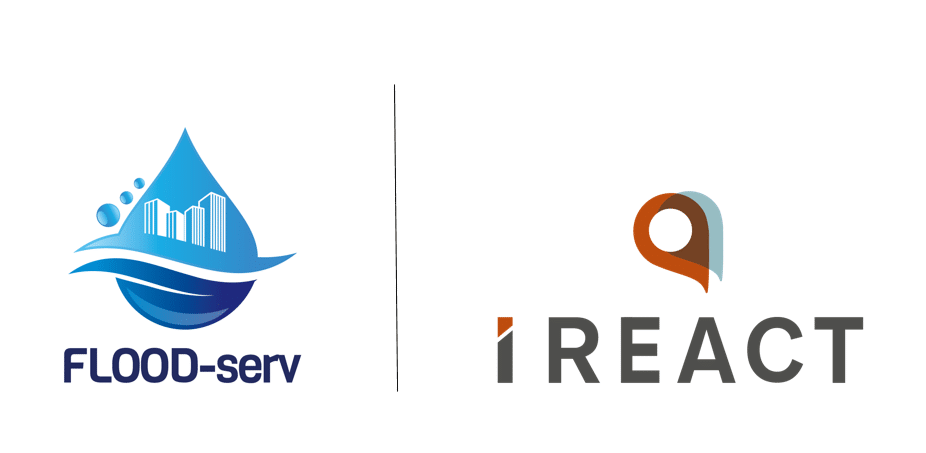
FLOOD-serv is happy to announce the establishment of a fresh communication liaison with the I-React project. Our project has become a member of the I-REACT stakeholders list and together – with the rest of Horizon 2020 projects – aim these collaborations translate into solutions that have a real social impact.
Moreover within the same context we have included I-REACT in FLOOD-serv related projects list and you can find it here.
I-REACT aims to develop a solution through the integration and modelling of data coming multiple sources. Information from European monitoring systems, earth observations, historical information and weather forecasts will be combined with data gathered by new technological developments created by I-REACT. These include a mobile app and a social media analysis tool to account for real-time crowdsourced information, drones to improve mapping, wearables to improve positioning, as well as augmented reality glasses to facilitate reporting and information visualisation by first responders.
With this approach I-REACT will be able to empower stakeholders in the prevention and management of disasters. Citizens will be involved in reporting first-hand information, policymakers will be supported in the decision making process, and first responders will be equipped with essential tools for early warning and response. Overall, I-REACT aims to be a European-wide contribution to build more secure and resilient societies to disasters.
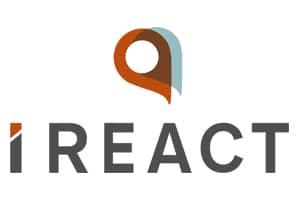
Due to climate change, floods, wildfires and other extreme weather events are becoming more frequent and intense. This scenario poses a challenge for current risk management systems.
I-REACT aims to develop a solution through the integration and modelling of data coming multiple sources. Information from European monitoring systems, earth observations, historical information and weather forecasts will be combined with data gathered by new technological developments created by I-REACT. These include a mobile app and a social media analysis tool to account for real-time crowdsourced information, drones to improve mapping, wearables to improve positioning, as well as augmented reality glasses to facilitate reporting and information visualisation by first responders. With this approach I-REACT will be able to empower stakeholders in the prevention and management of disasters. Citizens will be involved in reporting first-hand information, policymakers will be supported in the decision making process, and first responders will be equipped with essential tools for early warning and response. Overall, I-REACT aims to be a European-wide contribution to build more secure and resilient societies to disasters.
Website: www.i-react.eu
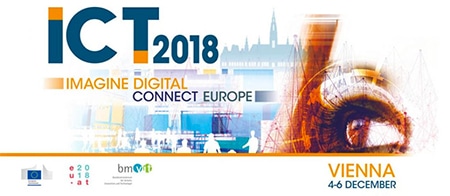
ICT 2018 will take place in Vienna on 4 – 6 December 2018. This research and innovation event will focus on the European Union’s priorities in the digital transformation of society and industry. Continue reading “ICT 2018: Imagine Digital – Connect Europe”
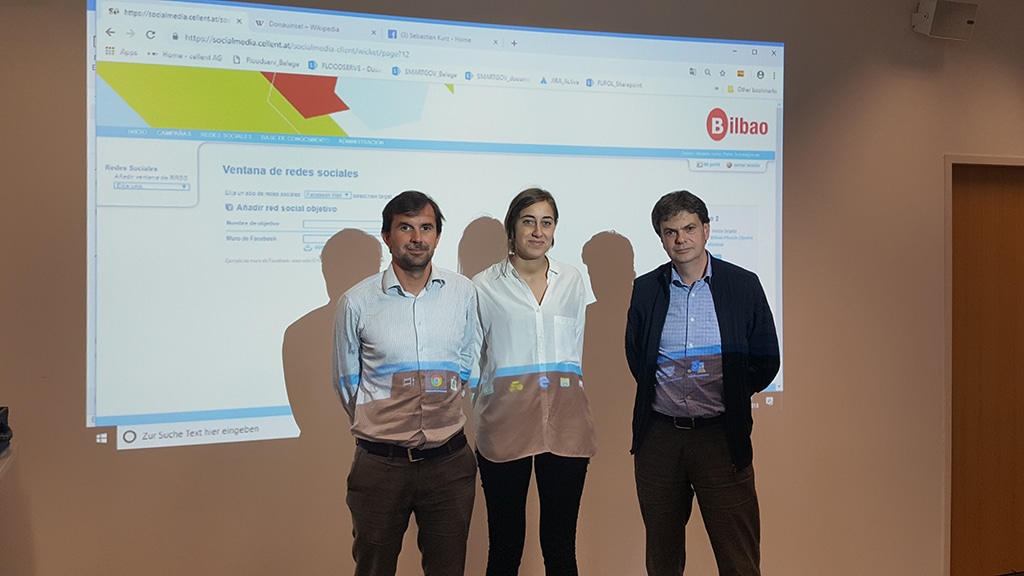
Our partners from Cellent at the beginning of October 2018 hosted at their office in Vienna representatives from the City of Bilbao in order to provide them training for the Social Media Component. Continue reading “Partners’ Training in Social Media Component 🗓”

FLOOD – serv: “Rischio alluvione: conoscenza, territorio, tecnologia”
About the FLOOD-serv project and joint with the IONONRISCHIO Italian National Campaign, a technical workshop was held in Genoa aimed at local stakeholders. This was developed in different phases: Continue reading “FLOOD-serv Workshop in Genova (October 2018) 🗓”

ICT 2018 will take place in Vienna on 4 – 6 December 2018. This research and innovation event will focus on the European Union’s priorities in the digital transformation of society and industry. It will present an opportunity for the people involved in this transformation to share their experience and vision of Europe in the digital age.
You can read more about the event here.
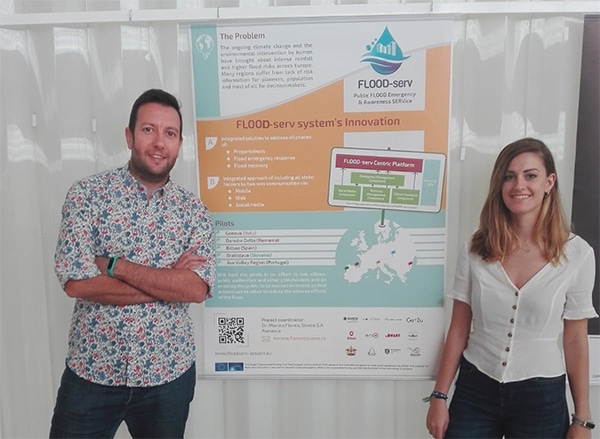
Our partners from Answare, Raquel Yuste and Jesús Martínez, participated at the event that Brigaid project organized in Cartagena, Spain on the 18th and 19th of October 2018.
EU funded projects under the Horizon 2020 programme related with resilience in floods, droughts and extreme weather were invited to this event in order to learn more from each other and explore ways of exploiting their results.
Within this context, the first day of the event our partners presented the FLOOD-serv project during the session that was mainly focused on the exploitation results. During the second day Raquel and Jesús presented a poster of our project in El Batel Auditorium of Cartagena.
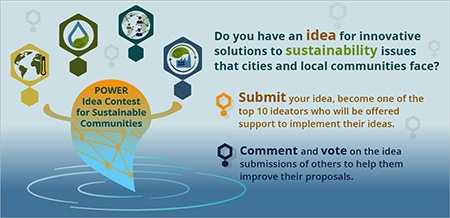
New contest supports sustainable municipal water concepts
POWER Idea competition now accepting applications – Closing date 30 November
A consortium of cities, SMEs and researchers has just launched a competition recognising the most innovative municipal concepts on sustainability and water challenges. Continue reading “POWER Project – PRESS RELEASE”

One of the activities of the project is to test a public service app, “FLOOD-serv App”, in order to increase the direct involvement of citizens, exploiting the collaborative power of ICT networks (networks of people, knowledge, sensors …), improve the awareness of citizens on flood risks and contribute to find solutions to mitigate collective risk.
The FLOOD-serv App provides the possibility of geo-referencing, adding images, sending reports, specifying details of the messages, transfer data that will flow into the back-office platform managed by the competent authorities that will manage them and give a feedback to the users.
In FLOOD-serv project there are some important testing steps for each member state of the partnership. In this context, on 12th October 2018 a workshop was held in Genoa and the title is “Flood-serv: preventing and reducing the effects of the flood”; the initiative coincided with the national “IONONRISCHIO” campaign (translation “I don’t risk”) promoted by the National Civil Protection of Italy.
During the workshop there were reports/speeches on different topics, i.e., the presentation of the activities of the Flood-serv project and its progress, by Anna Colombo (Municipality of Genoa), Gerardo Brancucci (University of Genoa – DAD), Andrea Pirni (University of Genoa – DISPO); the presentation of the project “IO NON RISCHIO”, by a voluntary trainer of Civil Protection, Fabio Nardoni.
At the end of this slot, Valentina Marin (University of Genoa – DAD) and Cristina Giusso (Municipality of Genoa) described the characteristics of the tests already started in the previous months and let go to start the experimentation of the FLOOD-serv App.
The participants downloaded and installed the application on their smartphone and tried to send a simple message based on the instructions received. Through the testing proposal, we intended to achieve two purposes: to spread the knowledge of the FLOOD-serv App test and, on the other hand, to collect impressions and suggestions to improve this tool.
In the second slot, a workshop Franca Balletti (University of Genoa – DAD) and Daniela Rimondi (University of Genoa – DAD) held and conducted another slot. It was aimed to a comparison among the participants and the speakers and to collect and share suggestions and indications about the use of ICT in the dialogue between citizens and public institutions.
We proposed two distinct moments of discussion about different identified themes, both organized according to the brainstorming technique. The method proved was suitable for developing the discussion and allowed the collection of many operative indications and original “food for thought”.
It’s important to remember that the participants at the workshop were qualified stakeholders, as representative of institutional or associations, operators that work for Public Authorities and know in depth both the problems related to the floods and the problems and the opportunities of dialogue through ICT between PA and citizens.
In particular, there were representatives of: city associations that carry out activities on the territory; local department of municipal institutions (competent offices on territorial issues and hydrogeological risk); Fire Brigade and Municipal Police; professional orders and professional associations.
The topics treated were three and concerned:
- The relationship between ICT and the two-way communication between the city and the public administration;
- The flow of information from the PA to citizens;
- The methods for collecting information from citizens towards public administration.
Many items concerned the FEEDBACKs that the administrations activate following the reports. Some participants said that the communication tool with the citizens should be able to activate a real and constructive dialogue in two directions: The reported problem must be taken into account and communication about it must be activated
With regard to the REPORT PROCESS, it was necessary to strengthen the tools for communication and for exchange of knowledge on the territory, as well as to simplify in reading and interpreting the reports. The reporting process should interact with the preliminary procedure that starts up in the resolution of a problem identified and taken care of.
Another widely discussed topic was the AUTHENTICITY OF THE SIGNALS. It should be essential that every communication system through ICT was equipped with adequate tools to distinguish and evaluate reports, in order to identify and interpret them even in the context of the “background noise” of the ICT and social network.
In addition, indications regarding the INTERNET INSTITUTIONAL WEBSITES AND THEIR LANGUAGE have emerged: the need to improve both the graphics and the organization of the institutional internet sites was discussed, in order to make them easier to use, finding the right compromise between a technical language and a language that, although simplified, is formally correct and effective.
It was also highlighted the need to USE MULTIPLE INTERACTIVE INSTRUMENTS or, if the goal of communication is the transparency and the speed of “delivery” the messages, many different channels should be provided to reach a multiplicity of users (including human contact).
In this sense, the use of existing social media could be done by certifying the authenticity. This process can facilitate reporting and decrease the work related to individual feedback (if the site I’m viewing is certified I can stick to what I read there without necessarily doing verification reports / calls / etc.).
New and important objectives have been suggested to the Administrations: increasing the CULTURE OF PREVENTION AND SELF-PROTECTION of individual citizens and the community as a whole, preparing and activating communication campaigns capable of increasing individual and community skills, verifying the result.
To increase the CAPACITY OF THE USE OF INSTITUTIONAL SITES AND SOCIAL MEDIA, or to set up and activate communication campaigns able to improve individual IT skills and cultural competences in order to distinguish reliable sites from those that are not and to spread the aptitude to respect the ethical and civil rules on social media. Other suggestion to the PA is about spreading the CULTURE OF CIVIL PROTECTION, or teach citizens to “be unprepared” (an expression suggested by one of the participants) in the awareness that, we can face the crises that may arise, only being ready and organized.
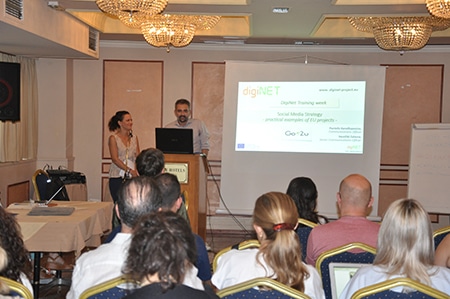
The DigiNet project funded under the Erasmus+ programme organized the DigiNet Training Week which took place in Athens, Greece from the 28th of August until 1st of September 2018. Continue reading “FLOOD-serv presented at the DigiNET Training Week 🗓”
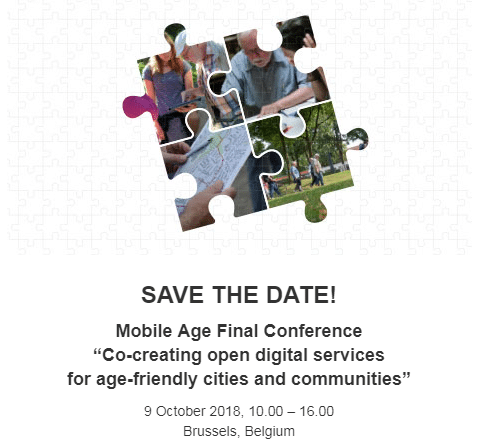
Local governments are more and more using open data to provide public services to their citizens. However, they lack tools on how to involve citizens, especially older citizens, in the design, planning, implementation and evaluation of these initiatives in order to make them address citizens’ needs and expectations in their daily life. Continue reading “Mobile Age Final Conference “Co-Creating Open Digital Services For Age-Friendly Cities And Communities”, 9 October 2018, Brussels, Belgium”
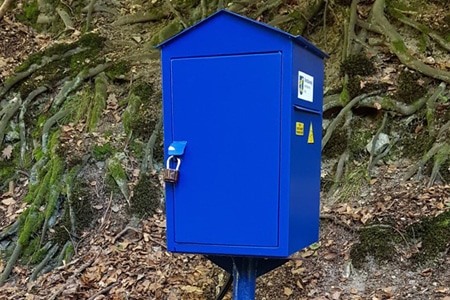
In June 2018, the Bratislava Self-Governing Region installed four sensors in the area within the frame of the EU funded project, FLOOD-serv. Two of them are located in the forests above Rača which measure the total rainfall, and the other two are water gauges that collect data from the Sand and Banská creek. Continue reading “Bratislava’s Pilot: Sensors Installation for protecting the area from floods”
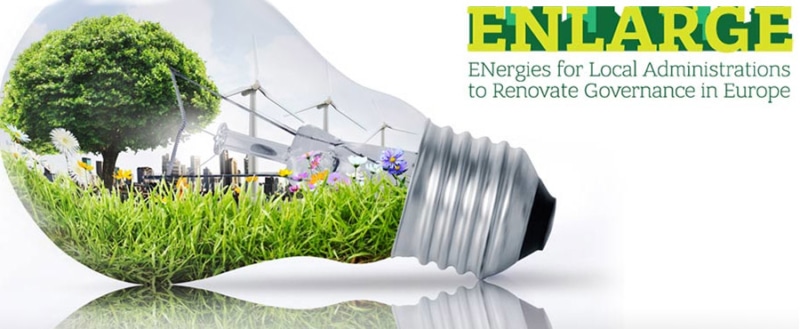
ENLARGE focuses on the effectiveness, legitimacy, and institutional sustainability of collaborative processes in the field of sustainable energy. Continue reading “Join the final event of ENLARGE Project”

The project ENLAGE is approaching to its end and the gamebook on collaborative processes is now available online. Continue reading “ENLARGE Gamebook is Ready: Start your Adventure in Collaborative Governance!”
